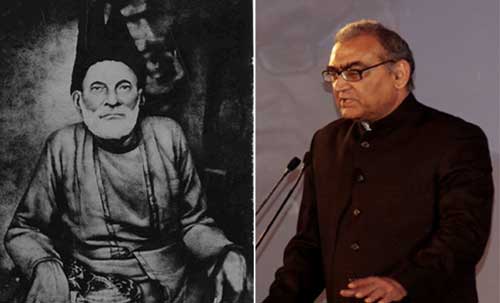New Delhi: Classical Urdu and Persian poet Mirza Ghalib should be honoured with the country’s highest civilian award Bharat Ratna, PCI Chairman Markandey Katju has said.
“There has been injustice with Urdu in the country. People associate a particular religion with this language. This is a ‘divide and rule’ policy. A few people know that Prime Minister Manmohan Singh writes his speech in Urdu.
“I believe Mirza Ghalib should be given Bharat Ratna posthumously. If Sardar Vallabhai Patel and B R Ambedkar can be given awards after their deaths, why can’t Ghalib be given?” Katju said at the 15th edition of ‘Jashn-e-Bahar’, an Urdu poetry symposium attended by poets from India, Pakistan, the US and other countries, here last night.
Union Minister Kapil Sibal, known for his penchant for poetry, read out two of his poems at the event.
“Urdu, if propagated, will spread love and peace. India will be incomplete if it doesn’t take Urdu in its stride. Urdu is not a language of the intellectuals, it is of the common man. I believe English, Hindi and Urdu should be taught in every school… There should be Google (version) in Urdu, also mobile handsets should have Urdu letters,” Sibal said.
The open-air seating against a candle-lit stage with modern calligraphy by late painter M F Husain, was in sync with the mood of the evening. Among the foreign participants who drew wide applause were Max Bruce (the US) and Hiroji Kataoka (Japan).
Veteran Urdu poets believe such mushairas (poetic symposiums) help in flourishing the language. “In fact, non-Muslim families are helping a great deal in the process. It is time that Muslim families make their own children learn Urdu,” poet and Vice-Chairman of National Council for Promotion of Urdu Language, Waseem Barelvi said.
JBT founder Kamna Prasad echoed similar views.
“It is time to come together and petition the government that Urdu teaching be made compulsory at least till Class V…We can only suggest. But it’s our responsibility to make sure that our coming generations are familiar with our composite culture,” she said.

